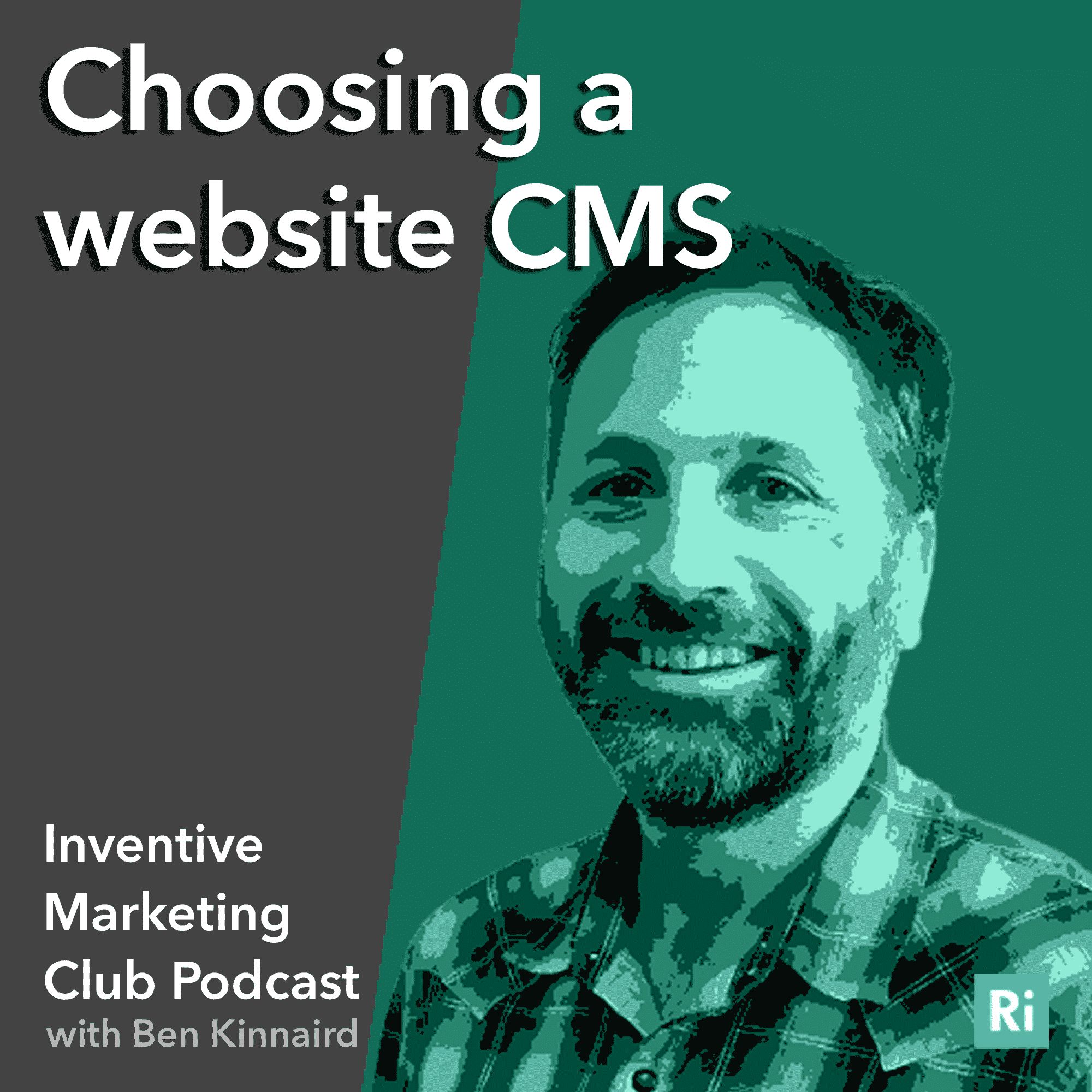[podcast_player youtube=”https://www.youtube.com/watch?v=YF8HUUqcehE”]
There are so many different and varied ways to build a website from coding your own in HTML to using a Content Management Systems (CMS) such as Weebly, Squarespace or WordPress.
In this extract from club webinar #18 I talk through the pros, cons and costs of the top website builders out there.
👋 If you found this podcast interesting you might like my Marketing Club. Join to receive regular tips and advice on marketing, video and the web and Pro Members get access to my live marketing webinars every month, exclusive discounts and other perks. Find out more here https://ratherinventive.com/club/
Episode Notes
Choosing a website CMS
I wouldn’t necessarily advocate to use any of these if we were building a website but there is nothing wrong with them if you are happy with the way that they work and understand what their limitations are.
Ben Kinnaird
Wix
- Quick to setup with simple questions
- Lots of templates available with a simple setup process which helps you to refine the best template for you
- Simple blocks & prompts to help write content
- Additional apps for blog, appointments and ecommerce
- A cheap way to get up and running with a relatively low skill level
Weebly
- Plenty of themes available
- The designer editor allows too much freedom and if you’re not careful you can break the site
- There are also free accounts available which some of the others don’t have.
- This is the platform I am least familiar with
Squarespace
- Lots if control over design
- Interface can be a little fiddly at first
- Ecommerce quite basic
- Can adjust template code
- Not the easiest to control for SEO purposes
WordPress
- Has an active community of developers
- Can get started for free on WordPress.com
- Completely flexible when self managed
- Lots of plugins such as ecommerce
- Best control over SEO
- The dominant website provider for 2019 was WordPress.
Shopify
- Used by 18% of ecommerce websites
- Simple setup, ecommerce focused
- Customisable templates
- Has point of sale app

